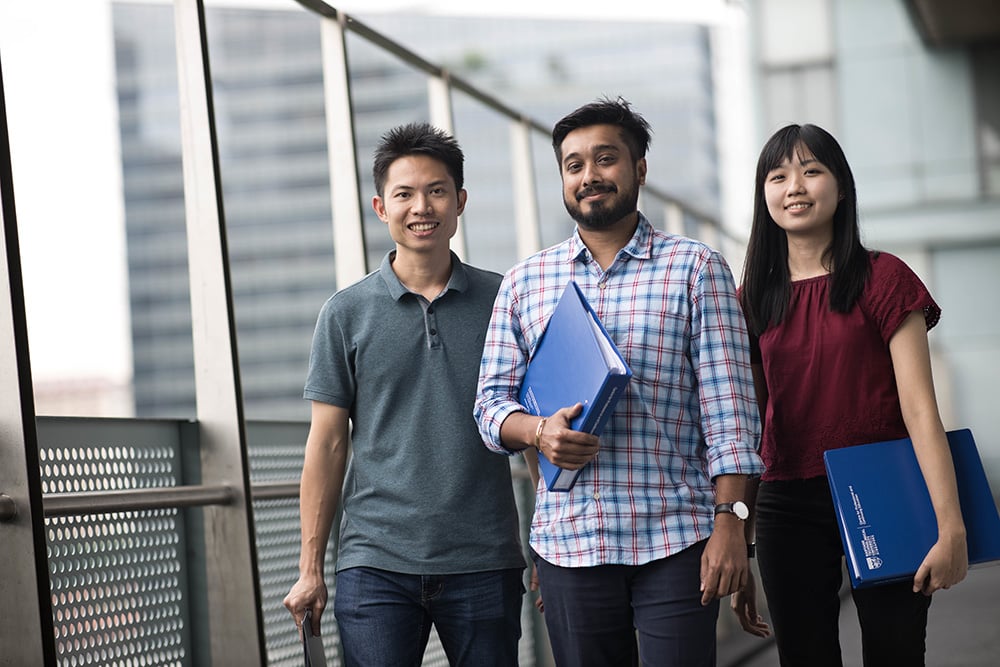Introduction
Biomaterials is a topic that cuts across many disciplines and gains more importance, especially in the era of pandemic. The growth of healthcare industries in recent years will bring about higher demand for talents and professionals with related skills in biomedical field, including biomaterials. Therefore, it is timely to offer this course to learners of any age who wish to pick up new knowledge and explore the exciting world of biomaterials.
This course will introduce students to the interdisciplinary field of biomaterials and their use in healthcare. In particular, students will learn about how host responds to biomaterials when they are implanted in the body and the possible complications that may arise. Various in vitro and in vivo compatibility tests will be introduced too. Finally, students will delve into some key applications of metallic and ceramic biomaterials as hard tissue replacements / supports.
This course is part of:
Download Learning Pathway e-Guide
By the end of this course, students should be able to:
- Define key terms and concepts in biomaterials science
- Illustrate ethical issues relevant to the development and use of medical devices
- Summarize guidelines to minimize risk of harm and protect the rights of animal and human test subjects
- Describe the main processes that give rise to the host response to implants and biomaterials
- Explain possible complications arising from an undesired host response
- Apply ISO 10993 test matrix to evaluate the biocompatibility of a biomaterial
- Explain the basic structure and properties of metallic and ceramic materials
- Describe properties of specific metallic and ceramic biomaterials and their application areas in the body
- Describe the main ways metallic and ceramic materials degrade in the body, considering both intentional and unintentional degradation
To meet the requirement of SkillsFuture Singapore, assessment(s) will be conducted during every course. The assessment(s) include:
- MCQ Quizzes
Suitable for professionals working in Engineering, Quality Control, Failure Analysis, Manufacturing and R&D.
Brief screening/shortlist of applicants involved in this course.
Standard Course Fee: S$2,868.88
SSG Funding Support | Course fee | Course fee payable after SSG funding, if eligible under various schemes | |
BEFORE funding & GST | AFTER funding & 9% GST | ||
Singapore Citizens (SCs) and Permanent Residents (PRs) (Up to 70% funding) | S$2,632 | S$860.66 | |
Enhanced Training Support for SMEs (ETSS) | S$334,26 | ||
SCs aged ≥ 40 years old | |||
- Standard course fee is inclusive of GST.
- NTU/NIE alumni may utilise their $1,600 Alumni Course Credits. Click here for more information.
| COURSE TITLE | ACADEMIC UNIT |
| CET774 Organic Structural Materials | 1 |
| CET775 Organic Electronic Materials | 1 |
| CET776 Organic Optical Materials | 1 |
| CET779 Tissue – Material Interactions | 1 |
| CET780 Materials in Medicine | 1 |
| CET781 Tissue Engineering & Drug Delivery | 1 |
| CET782 Processes for Particulate Materials and Bulk Materials | 1 |
| CET783 Vacuum Processes | 1 |
| CET784 Solution Processes | 1 |
| CET847 Inorganic Materials | 3 |
| CET848 Processing of Organic Materials | 3 |
Listed courses are:
- Credit-bearing and stackable to Graduate Certificate in Materials Science and Engineering (9 AU), FlexiMasters in Materials Science and Engineering (15 AU) and Master of Science in Materials Science and Engineering (30 AU).
- SSG funded and SkillsFuture Credit approved.














/enri-thumbnails/careeropportunities1f0caf1c-a12d-479c-be7c-3c04e085c617.tmb-mega-menu.jpg?Culture=en&sfvrsn=d7261e3b_1)

/cradle-thumbnails/research-capabilities1516d0ba63aa44f0b4ee77a8c05263b2.tmb-mega-menu.jpg?Culture=en&sfvrsn=1bc94f8_1)





